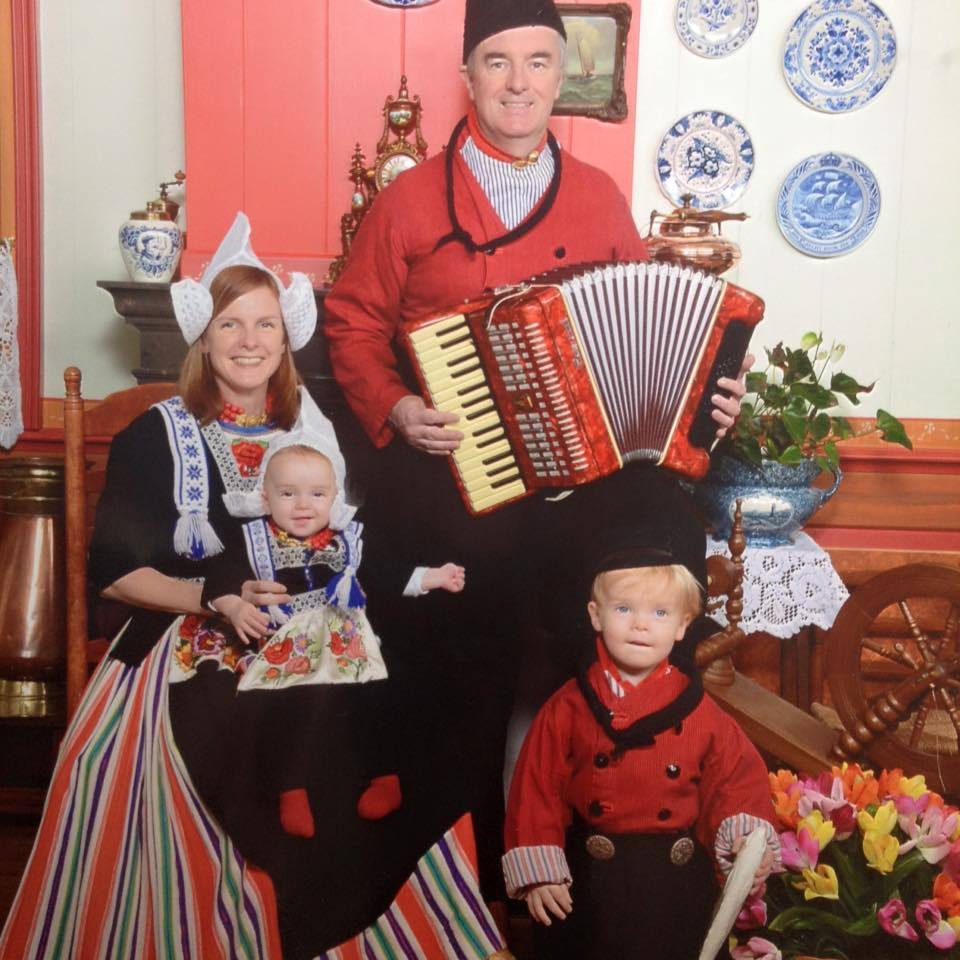I was what you'd call a military brat, raised by an Irish mom and American dad in, for long stretches of my childhood, Germany and the Netherlands. I hesitate to call myself a third-culture kid, because although I was geographically outside both my parents' birth countries, I went to international schools and the language of my upbringing was very much English.
Now I'm living in the Netherlands again, this time married to an Irish man. We have three small children who are true third-culture kids. In contrast to my childhood, our kids go to a local Dutch school and their lives outside of our home are almost exclusively Dutch, culturally and linguistically.
RELATED: Why This Family Got Fined For Going On Vacation
We only speak English at home, but we do a lot of code switching: we mix both languages in the same sentence. It's a bit dangerous for me as a writer and editor in English to start saying things like, "Do your shoes out" when I mean, "Take your shoes off." That's definitely not English, but if you know some Dutch you can understand how this happens: Doe je schoenen uit.
We sometimes choose a word from another language because it feels more appropriate. I use the word boos, for example, because it sounds less severe to me than angry. Similarly, I prefer the Dutch twijfel to what it's often translated to, doubt, because to me it means more "to go back and forth" about something, which takes longer to say, and even the sound of the word twijfel suggests to me something teetering, oscillating.
They know they speak two different ways, but they are sometimes confused about how to identify what they speak.
We choose words based on the circumstances in which we usually use them. Most things to do with the children outside of the house strays into Dutch. We say glijbaan and wip-wap instead of slide or see-saw. We say tien uurtje instead of morning snack. We don't have playdates, we afspreken.

Our three children, who were born here, are what you call simultaneous bilingual children: they have been learning both Dutch and English from the start, compared with other children who became proficient in one language before learning another.
They will learn a word in one language and then quickly pick up the same word in the second language. Which comes first depends on the language in which the word was first experienced. For example, they played verstoppen spelen before hide-and-seek because they first experienced it at their Dutch-language daycare.
I took my older two to America last spring, where they spoke Dutch for the first few days every time we left my friends' or sister's houses, because they still assumed English was for in the house and Dutch was for everywhere else.
But more than just switching back and forth, they have been consciously translating for a few years now ("Here's a schaap, no sorry mommy, sheep.") They know they speak two different ways, but they are sometimes confused about how to identify what they speak. ("What do I speak at school, do I speak like, hond or dog?") And now that they've done some traveling, they are more aware that languages go with countries ("Are we in French or Dutch?").
And they already complain that 'it's diet eerlijk'—unfair—that some of their friends also speak French—three languages—and they don't.
Now that they are getting older, and will soon be learning to read, the question of simultaneous bi-literacy has risen. It's one thing to speak two languages, but to learn to read and write in two at the same time is something else. Some research says that these are transferable skills, that children should learn the cognitive skill of reading in one language and than transfer that to another, just as I do when I learn to read in Dutch or understand the rules of Dutch spelling.
Other research says they can manage doing both at the same time, which is how I lean—or how I have done it without really thinking about it until now. I've always read to my children in English at home. We have Dutch books also, but I read a lot of English. And the other evening, as I was helping my son fill out the "Friend book" of one of his friends (most children have these books— their friends fill out a series of questions, like their favorite movie, food, song and so on). I was using English to tell him how to spell in Dutch. Not that big a thing, except it's something I struggle with sometimes because some letters sound the same but mean a different thing. For example, the English letter i sounds in Dutch like the English letter e. And my son just knows that.
RELATED: The Case for Permitting Teen Sex at Home
It is because they are processing the various layers on a daily basis that bilingualism has so many benefits: a more nimble brain, a higher resistance to dementia and stronger analytical skills are among the advantages research has found to bilingualism. And they already complain that "it's niet eerlijk"—unfair—that some of their friends also speak French—three languages—and they don't.
My husband and I have a fair amount of catching up to our children when it comes to bilingualism and ease of language acquisition, but that's a benefit to us as well. All in all, the voordelen of growing up bilingual definitely outweigh the nadelen—as we are wont to say these days.
Photograph by: Tracy Brown Hamilton




